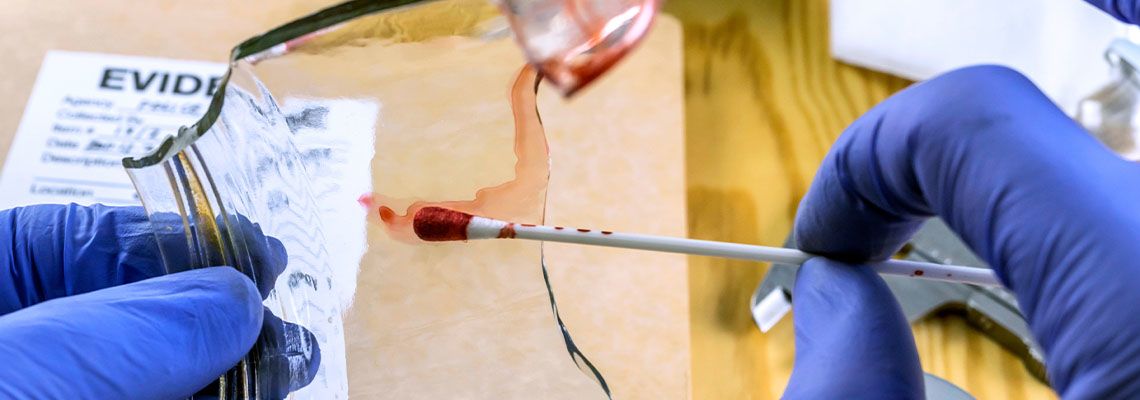
Understanding DNA Used as Evidence
In the realm of criminal investigations, DNA evidence has emerged as a pivotal tool. DNA evidence involves the collection and analysis of biological material containing an individual's unique genetic code. This genetic code can be found in every cell of our bodies and may be extracted from various sources such as blood, saliva, hair, or skin cells left at a crime scene.
By comparing DNA profiles obtained from crime scene evidence with known DNA profiles of suspects or individuals in a database, connections can be established, potential perpetrators identified, and innocent individuals excluded from suspicion. DNA evidence has revolutionized the criminal justice system, leading to the resolution of cold cases, the exoneration of wrongfully convicted individuals, and the conviction of the guilty.
If you are facing criminal charges and need to retain a skilled criminal defense attorney, reach out to Wolfe & Mote Law Group, LLC in Columbus, Ohio, as soon as possible. The firm’s team of experienced attorneys can help identify ways DNA evidence may impact your defense strategy.
Collecting and Preserving DNA
When a serious crime occurs, law enforcement must promptly collect DNA evidence from the crime scene or other relevant locations. Trained forensic investigators follow specific guidelines to identify, collect, and preserve DNA evidence, ensuring that the collection process is representative of all relevant DNA evidence present. The collection and preservation of DNA evidence are critical to ensure its admissibility and reliability in court.
In cases where a suspect has been charged, their attorney or investigator may seek access to the crime scene or location to collect DNA evidence independently. This requires obtaining a court order to allow the collection by a representative properly trained in DNA evidence identification and preservation. The collected DNA evidence is then packaged, labeled, and stored in a manner that maintains its integrity and ensures its availability for testing and retesting.
Using DNA as Evidence
DNA evidence can have a significant impact on criminal proceedings. It can establish a link between a suspect and a crime scene, corroborate witness testimonies, or exclude individuals from suspicion. When presented in court, expert witnesses qualified in DNA analysis can testify about the scientific principles, techniques, and interpretation of DNA evidence.
Prosecutors may use DNA evidence to strengthen their case by demonstrating the presence of the defendant's DNA at the crime scene or on the victim. Defense attorneys, on the other hand, may challenge the reliability or interpretation of DNA evidence, raising questions about contamination, mishandling, or the possibility of false positives. The admissibility of DNA evidence is determined by the court, which considers the scientific validity and reliability of the techniques used.
How Effective and Accurate Is DNA Evidence?
DNA evidence is considered highly accurate and reliable when collected, analyzed, and interpreted using proper scientific protocols. The accuracy of DNA testing depends on the quality and quantity of the DNA sample, the proficiency of the laboratory conducting the analysis, and the adherence to established standards and procedures.
Modern DNA testing techniques, such as Polymerase Chain Reaction (PCR) and Short Tandem Repeat (STR) analysis, can produce highly specific and discriminating results. The statistical analysis of DNA profiles allows experts to calculate the probability of a random match, providing a measure of the strength of the evidence. However, it is essential to recognize that DNA evidence is not infallible. Human error, laboratory contamination, or mishandling of samples can introduce inaccuracies. Therefore, it is crucial to ensure that DNA evidence is collected, analyzed, and interpreted by qualified professionals following established protocols and quality assurance measures.
Can DNA Evidence Be Used Post-Conviction?
Yes, DNA evidence can be used post-conviction to reexamine cases and potentially prove the innocence of individuals who have been wrongfully convicted. Advances in DNA technology have led to the establishment of post-conviction testing procedures, allowing convicted individuals to request the testing of DNA evidence that may not have been available or properly analyzed during their trial.
If the testing of post-conviction DNA evidence produces results that create a reasonable probability of innocence, it can lead to the exoneration and release of the wrongfully convicted individual. Post-conviction DNA testing has played a crucial role in uncovering wrongful convictions, highlighting flaws in the criminal justice system, and prompting reforms to prevent future injustices.
You Deserve the Best Defense
DNA evidence has revolutionized criminal investigations, providing a powerful tool for identifying perpetrators, exonerating the innocent, and ensuring justice. The collection, preservation, and analysis of DNA evidence require strict adherence to established protocols and quality assurance measures to maintain its integrity and reliability. Understanding these complexities can be challenging, but with the assistance of experienced attorneys like Stephen Wolfe and Elizabeth Mote, clients can navigate these intricacies with confidence. Wolfe & Mote Law Group, LLC proudly serves clients in Columbus, Ohio, and the surrounding areas, including Dublin, Westerville, Gahanna, and Hilliard.